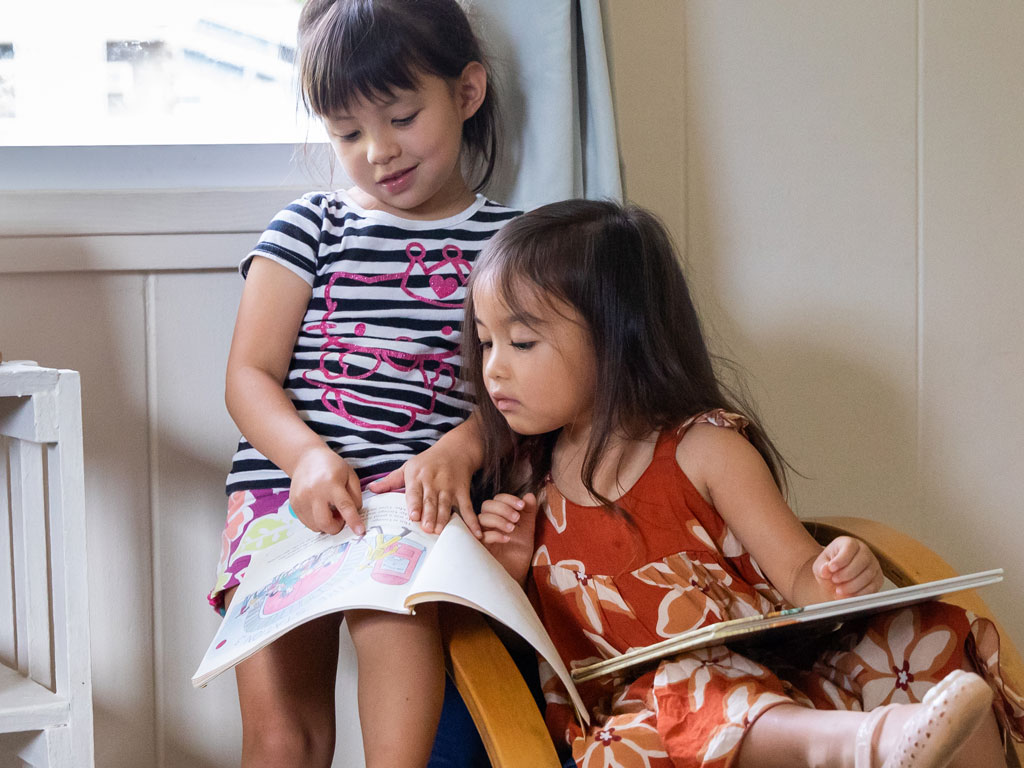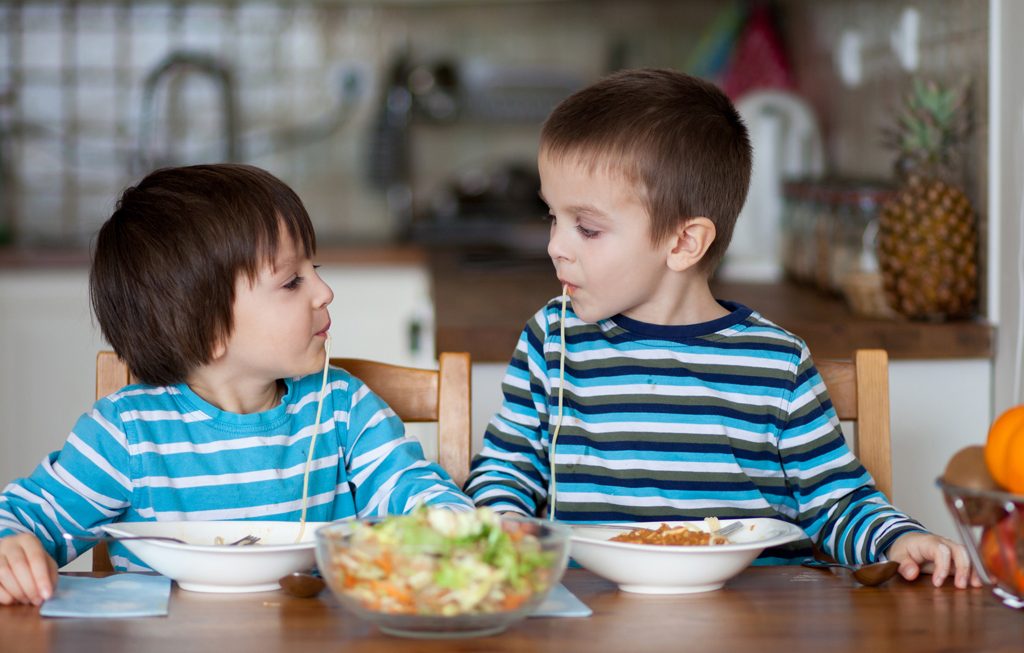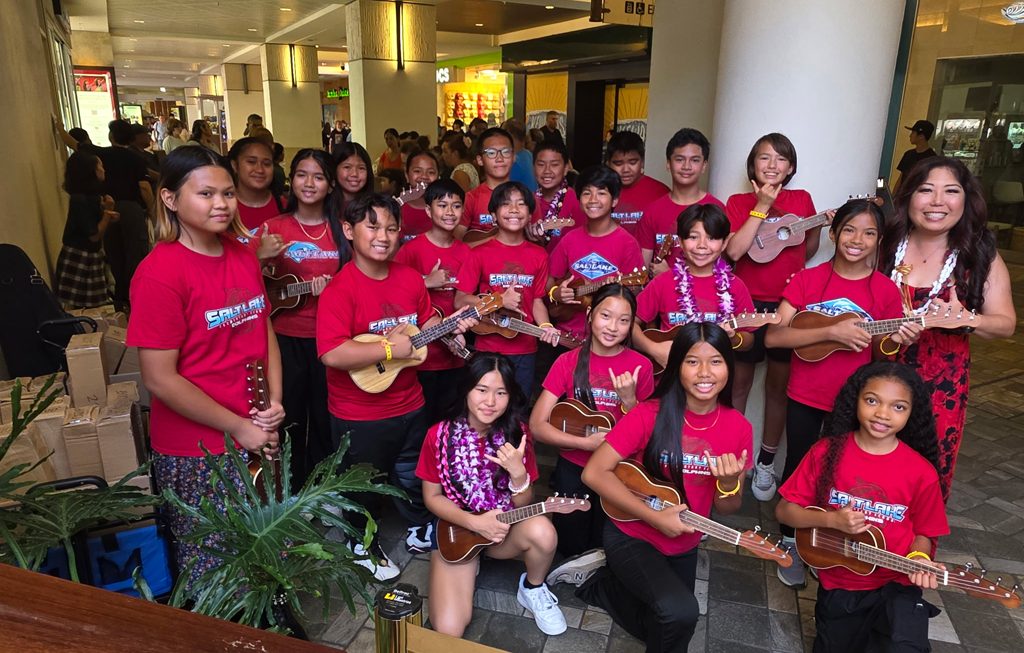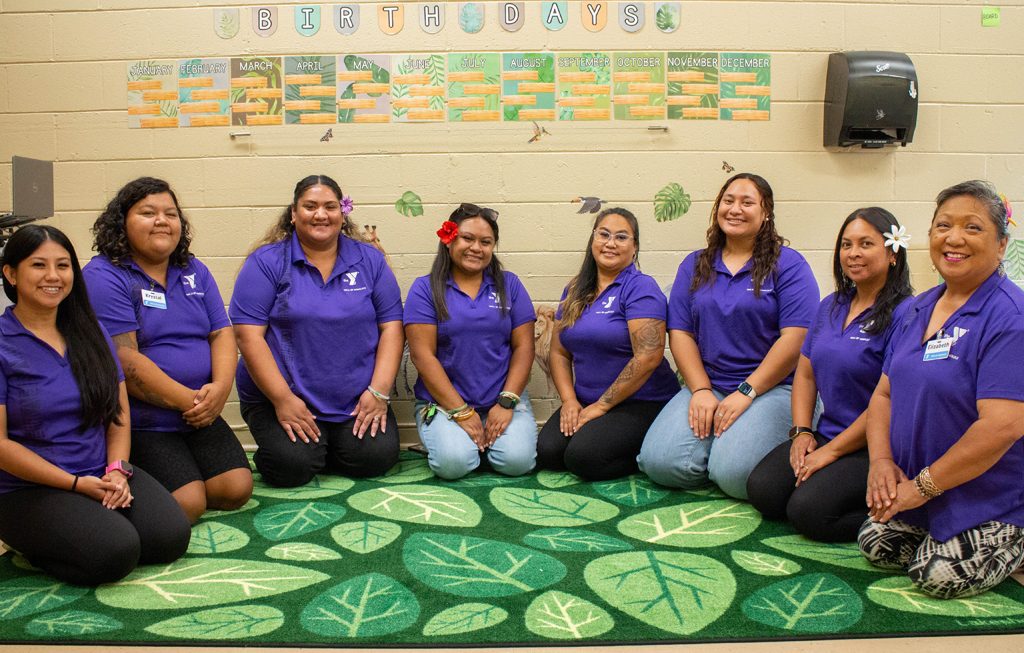When parents begin exploring educational options for their children, Montessori often stands out. With its emphasis on independence, curiosity, and holistic development, the Montessori Method stands the test of time, with over 100 years of success across cultures and continents. Families exploring Montessori programs for the first time often begin with a few key questions. What exactly is the Montessori Method? Will it fit my child’s personality, and our family’s needs? How does it prepare students for the future?
Here’s a comprehensive look at what parents most want to know when considering a Montessori education—and why it may be the right fit for your family.
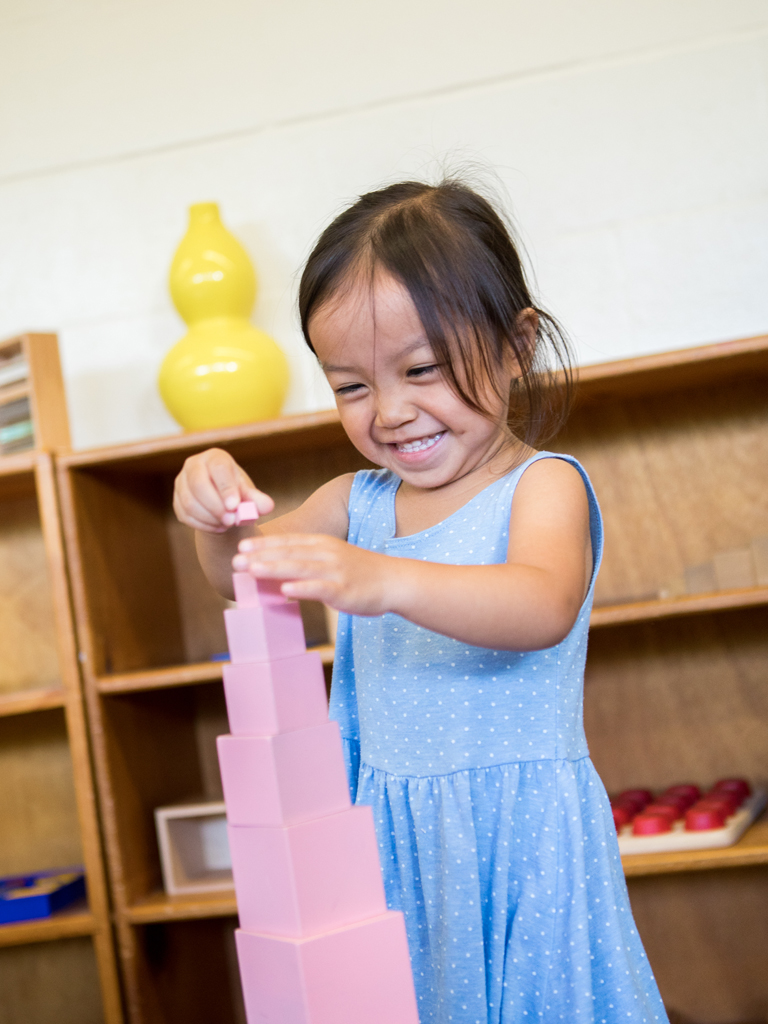
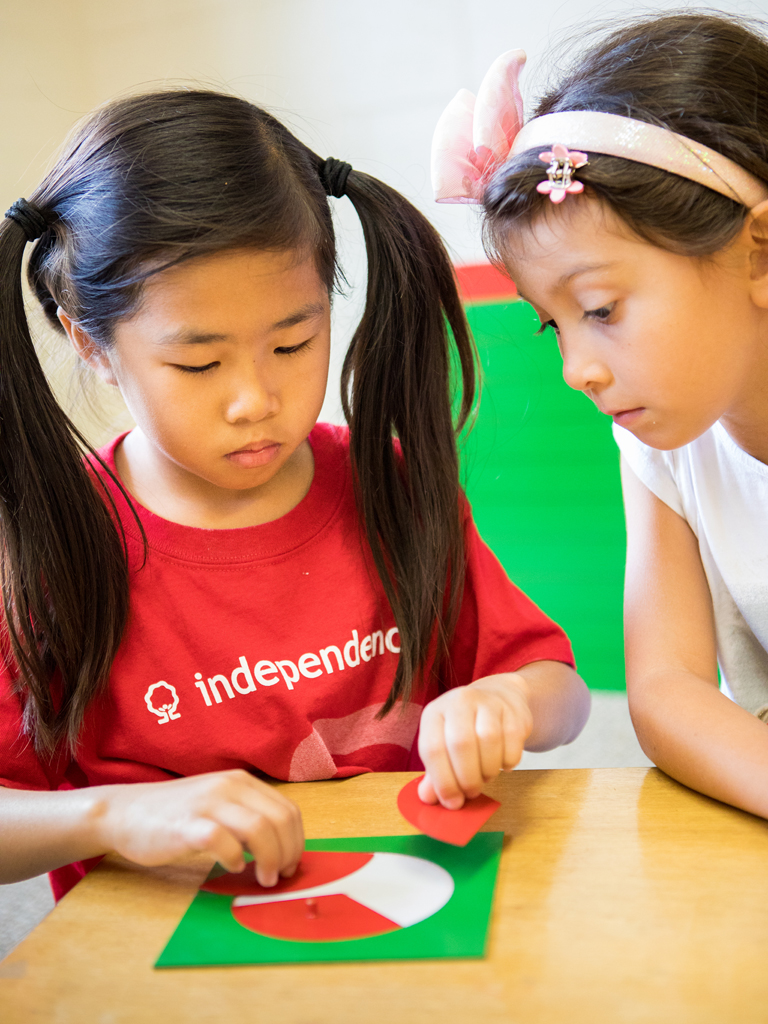
What is Montessori? Education for Life.
Montessori is more than a teaching method. It’s a child-centered approach to learning developed by Dr. Maria Montessori, an Italian physician and educator who believed that children learn best when they are free to move, make choices, and engage with their environment at their own pace. The goal of a Montessori education is not only academic achievement, but the development of a child’s independence, concentration, and to cultivate a lifelong love of learning. Students in a Montessori classroom aren’t just preparing for the next grade level, but building a foundation for their whole lives.
Child-Centric Learning
Montessori education is rooted in deep respect for the child as an individual. Honoring each child’s unique rhythm, interests, and potential, it’s grounded in the belief that children learn best when they are given the freedom to explore and discover.
Classrooms are multi-age, meaning that children stay with the same teacher for a three-year cycle, so children are able to work and develop at their own pace. These mixed-age groupings also encourage peer learning and mentorship: younger students learn by observing older peers, while older students in the class gain leadership skills and confidence guiding their younger peers.
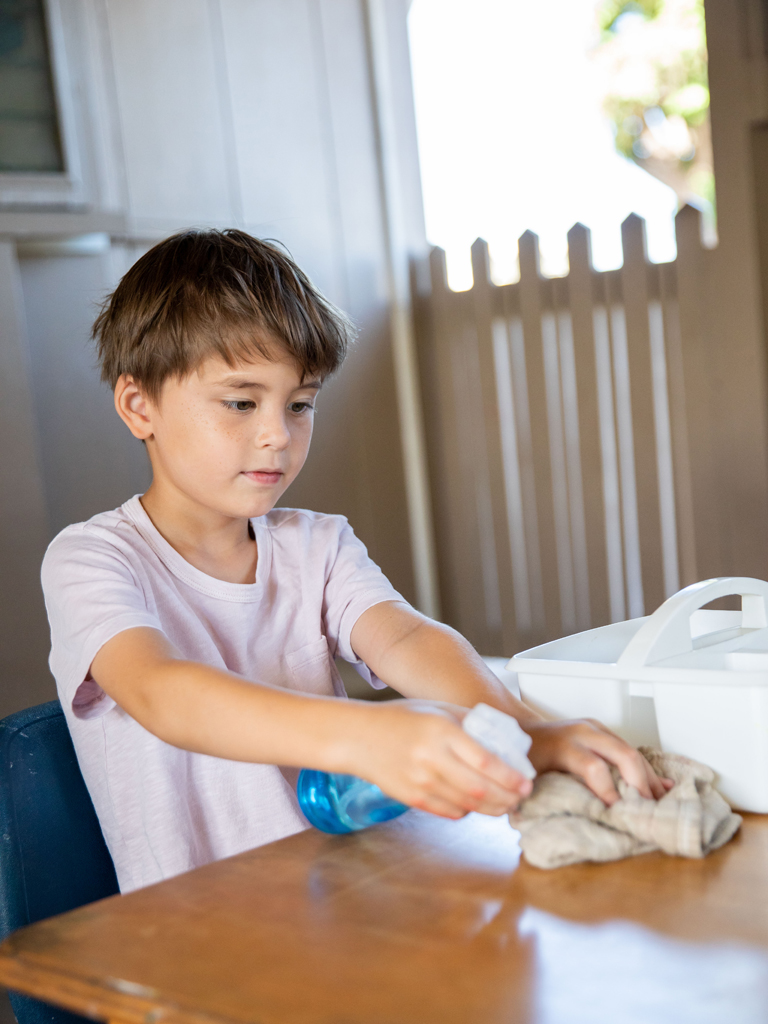
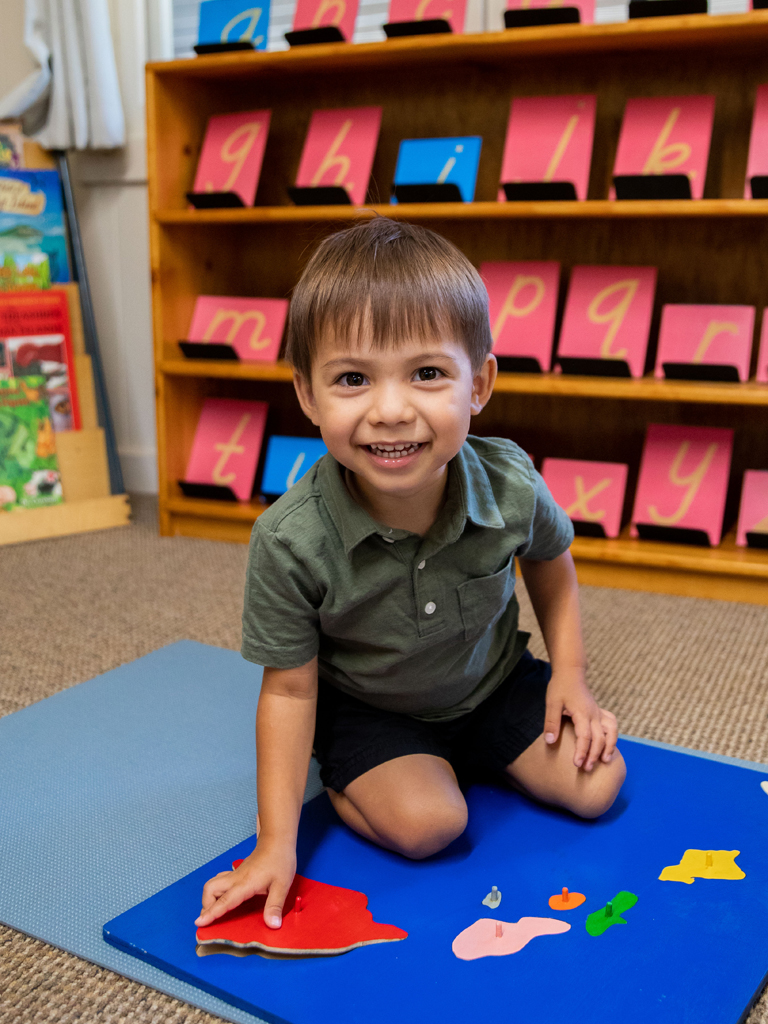
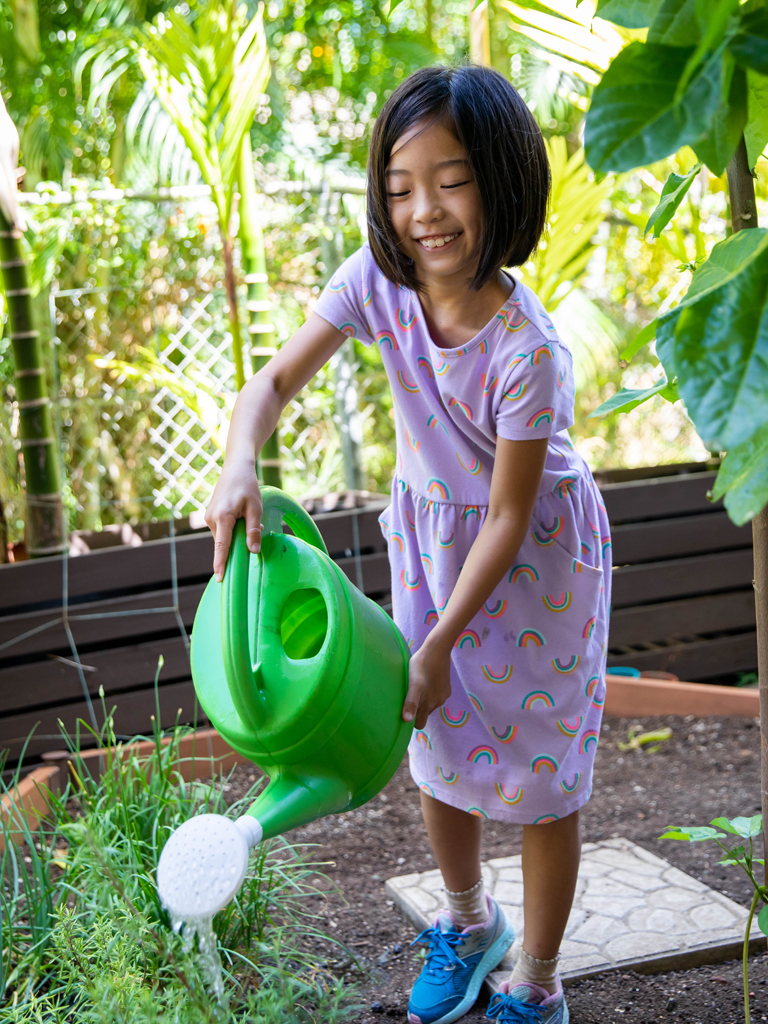
The Prepared Environment
At the heart of an authentic Montessori education is the “prepared environment,” a peaceful and thoughtfully designed classroom where every material and job is selected to meet the developmental needs and interests of children. Furniture is child-sized and materials are placed within easy reach, inviting children to choose their work independently. Classrooms include defined areas for math, language, practical life, sensorial and cultural materials. This setup promotes active engagement, allowing students to become confident participants in their own learning. The Montessori method is well known for its emphasis on experiential learning. Children interact with specially designed materials that encourage them to explore and understand concepts deeply.
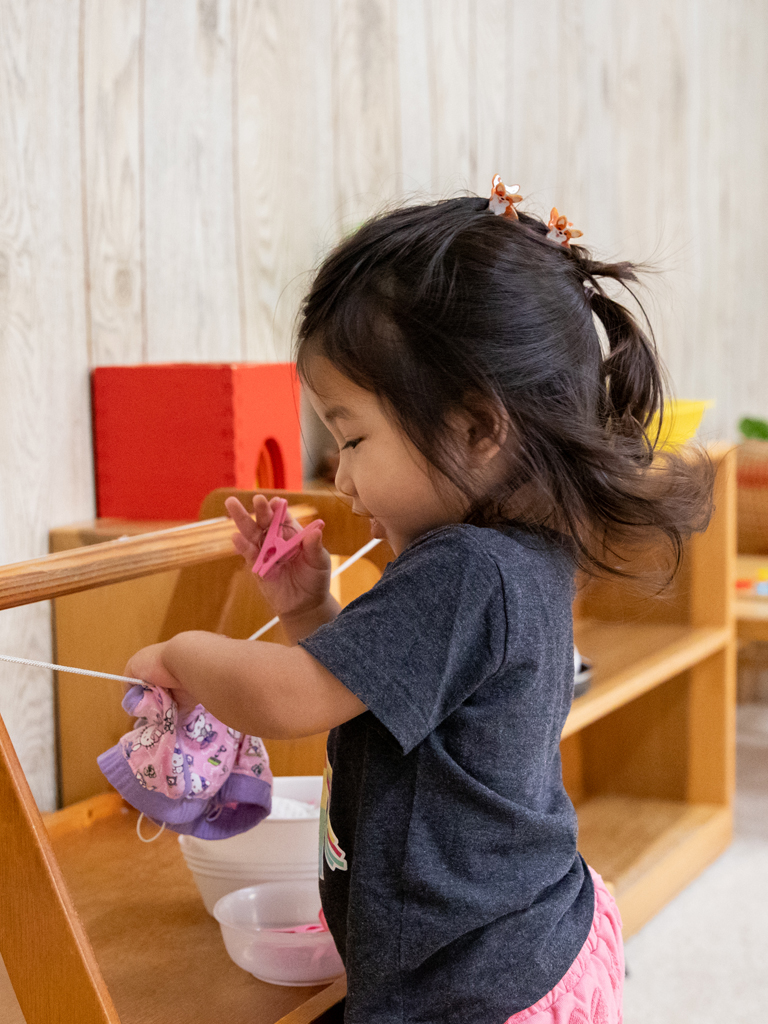
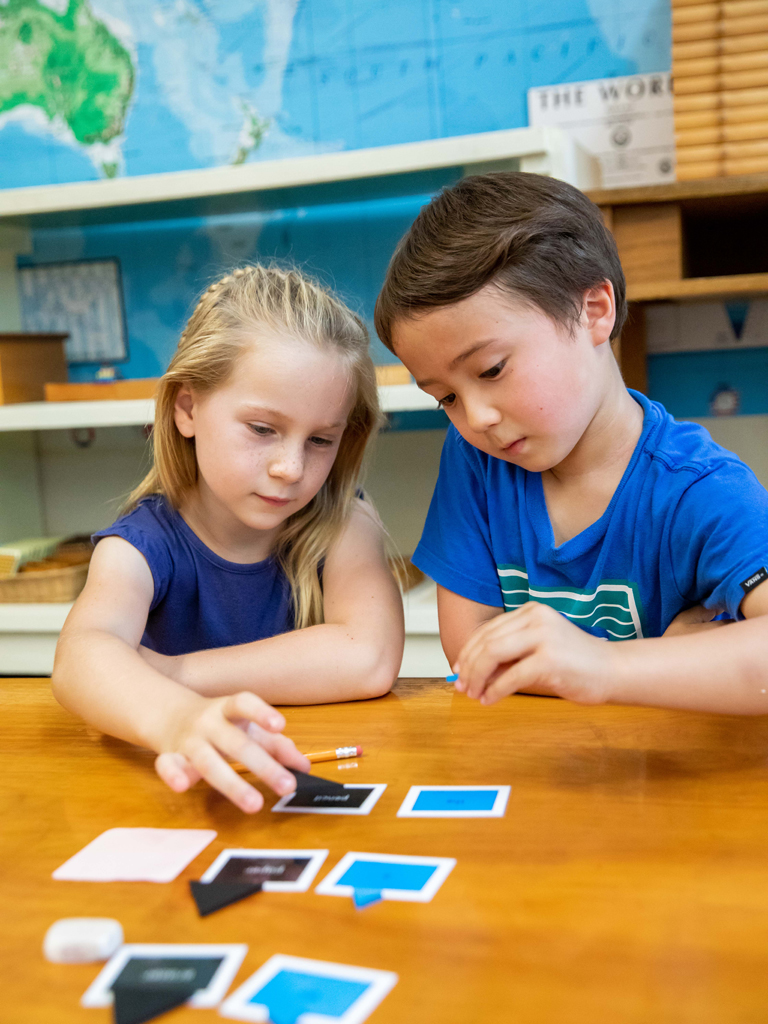
Montessori Teachers
Montessori-credentialed teachers do more than deliver lessons—they carefully observe each child’s interests, development, and readiness for specific lessons. Instruction is personalized, supporting each learner on their unique path. They offer just the right challenge at just the right moment, always encouraging curiosity, confidence, and independence. And because children stay in the same classroom for a three-year cycle, Montessori teachers have the time to form strong, trusting relationships and truly understand what motivates a child, the specific way they like to learn and ultimately ensure they thrive.
Parents often wonder, “Will the teacher push my child enough?” Montessori teachers challenge students when they’re ready—not before. It’s a different kind of rigor, one that respects the child’s internal drive and unique developmental timing.
Fostering Autonomy and Confidence
Montessori classrooms offer children the freedom to choose their activities and be self-directed in their learning. While freedom is a vital part of Montessori philosophy, it is always offered within clear, supportive boundaries. Too many choices can overwhelm young learners, so teachers intentionally provide a curated range of options to help children make thoughtful, manageable decisions. In doing so, students build skills in time management, self-discipline, and responsible decision-making.
By providing meaningful choices and encouraging independent exploration, Montessori education nurtures both autonomy and self-confidence. Children learn to trust their instincts, make decisions, and take pride in their work. These skills extend far beyond academics, helping students become adaptable, resilient, and self-assured individuals.
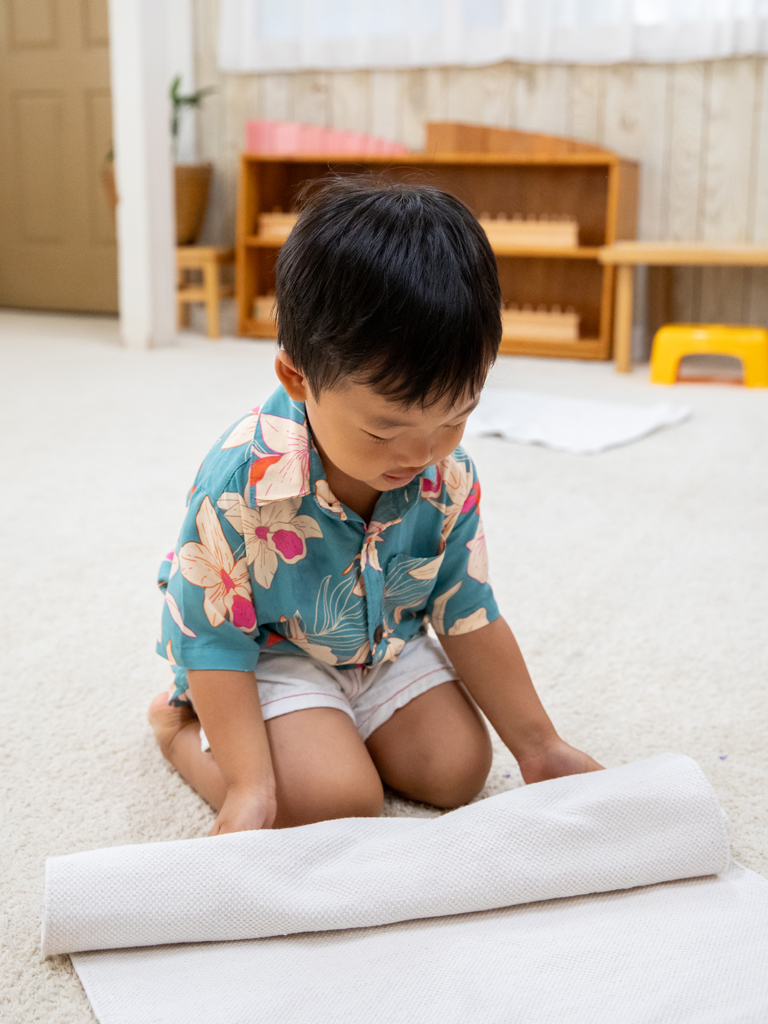
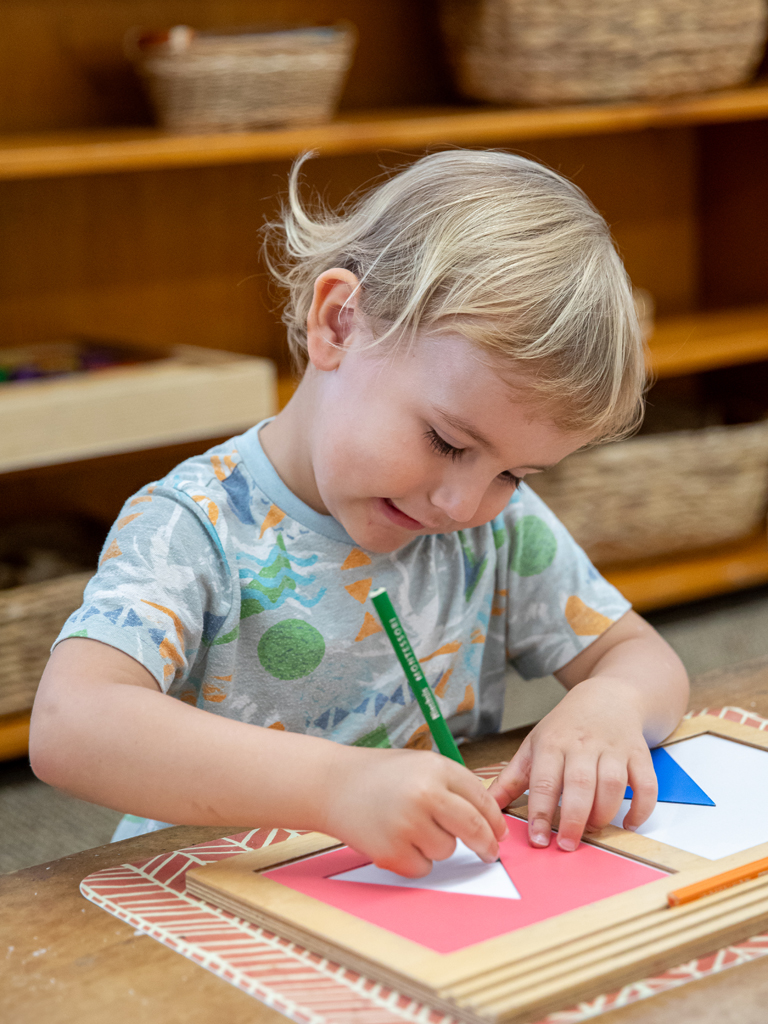
Developing Skills for the 21st Century
A Montessori education fosters the kind of whole-child development that’s increasingly valued in today’s world:
- Critical thinking: Children learn to analyze, question, and solve problems through hands-on exploration.
- Collaboration: Multi-age classrooms encourage mentoring, teamwork, and empathy.
- Adaptability: Students learn to manage their time, make choices, and navigate challenges independently.
- Emotional intelligence: Respectful communication and conflict resolution are built into the daily routine.
- In addition to excelling academically, empowered, compassionate, and able to navigate complex social and intellectual challenges.
Montessori in the Digital Age
One challenge facing educators today is how to integrate technology without losing the essence of hands-on, experiential learning. Montessori schools are thoughtfully integrating digital tools as supplements to hands-on learning, ensuring technology enhances rather than replaces the core educational experience. Technology is introduced in ways that support creativity, research, and collaboration,without undermining the tactile, social, and self-directed nature of Montessori education.
This balance is critical in today’s world, when screen time and digital distraction are major concerns for families. Montessori offers a model for tech-savvy learning that still prioritizes human connection and real-world engagement.
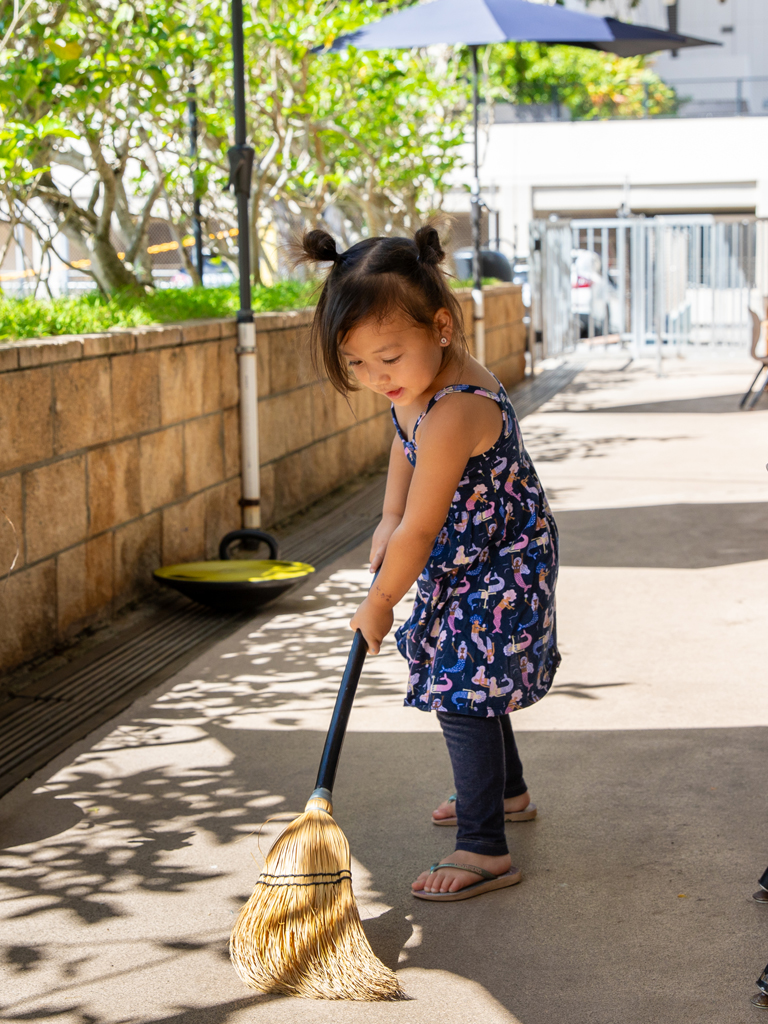
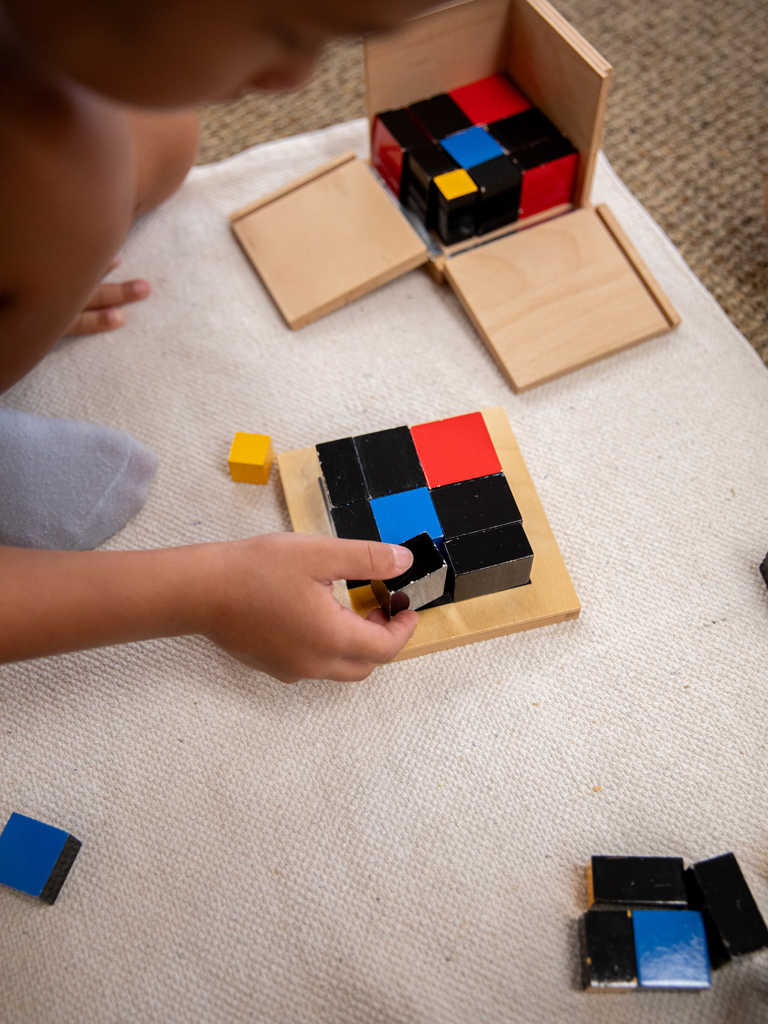
Will My Child Be Ready to Transition to a Non-Montessori School Later?
Yes. Montessori students are well-prepared to transition into schools with different learning environments. They’ve learned how to learn—not just what to learn—which gives them a strong foundation for future academic and personal success. Montessori graduates report that they were well-prepared for the rigors of secondary school, college, and beyond.
Final Thoughts: A Time-Tested Model for a Changing World
Montessori education may be over a century old, but its relevance has never been greater. Children today need more than academic achievement—they need resilience, empathy, creativity, and purpose.
Montessori supports students in becoming independent, curious, and capable life-long learners. And in 2025, that may be the most important goal of all.
Montessori Education in Hawaii
Montessori Community School is dedicated to fostering a love of learning through the Montessori method, nurturing children’s natural curiosity and independence. Montessori Community School is the only school in Hawaiʻi that is fully accredited from Preschool through Sixth Grade by both the American Montessori Society and Hawaii Association of Independent Schools. Serving children from ages 2 to 12 (toddler to sixth grade), Montessori Community School provides a comprehensive education that promotes self-directed learning, critical thinking, and social responsibility. Parents choose Montessori Community School school for its proven track record of preparing children for academic success and personal growth. With a focus on developing the whole child—intellectually, emotionally, and socially—Montessori Community School creates an environment where students thrive. Graduates of Montessori Community School are well-prepared for the next stages of their education, often gaining acceptance to their first-choice middle schools.
Located in the vibrant Makiki area of Honolulu, Montessori Community School enjoys the advantages of being centrally situated. Right outside Manoa, and only five minutes from downtown, this prime location provides easy access for families all over Oʻahu, providing convenience for parents and fostering a diverse and inclusive community.
The school’s accessibility encourages strong parental involvement and community engagement, essential components of the Montessori educational approach.
After 50 years of excellence, Montessori Community School’s mission remains as vital as ever: to provide an “education for life” that nurtures the mind, heart, and spirit of every child.
To learn more about Montessori Community School, visit www.montessorihawaii.org.


